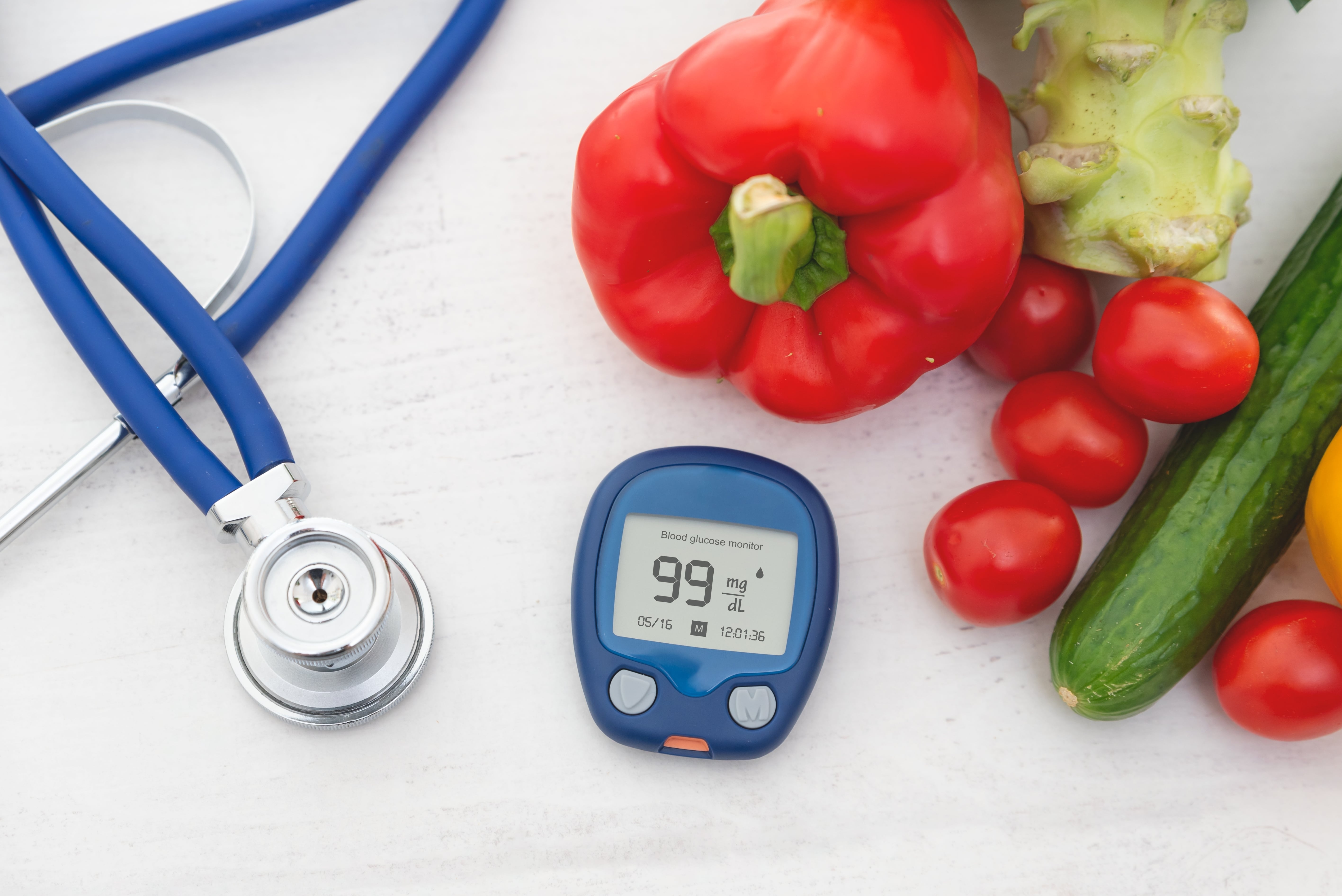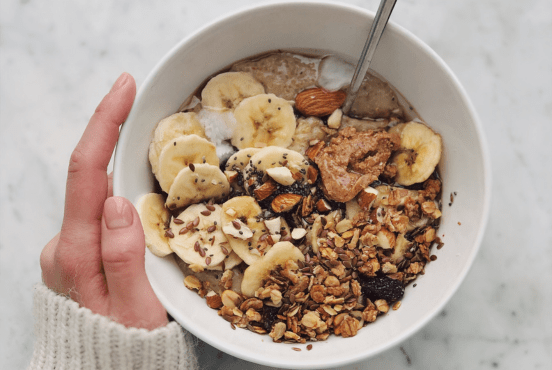Biohacking Your Health: Which Foods Can Help Manage Diabetes
Last Updated: 06 November 2025

Managing diabetes is more than just monitoring blood sugar levels. It's about making informed choices every day that support long-term health. One of the most effective tools for managing diabetes, and potentially reducing the risk of developing it, is nutrition. What you eat can significantly impact how your body manages blood glucose, insulin sensitivity and inflammation.
In this article, we explore how biohacking your diet can support better diabetic outcomes. These insights are provided by Vivere’s Head of Nutrition, Yusra Serdaroglu Aydin, a registered dietitian with a background in nutrition, food engineering and culinary arts. Her approach is grounded in science and shaped by a strong understanding of personalised nutrition and the human microbiome, two crucial elements when it comes to managing chronic conditions such as diabetes.
Key Takeaways
Certain foods can improve blood sugar control, insulin response and gut health, which are key in managing diabetes
Fibre-rich foods such as legumes, vegetables and whole grains help slow glucose absorption
Fermented foods support a healthy gut microbiome, which plays a role in blood sugar regulation
Personalised nutrition, based on your gut health profile, offers more targeted dietary support for diabetes
Small, consistent dietary changes often lead to the most sustainable improvements in diabetic health
Understanding the Link Between Food and Diabetes
Type 2 diabetes occurs when the body becomes resistant to insulin or doesn’t produce enough of it. Insulin is essential for moving glucose from the bloodstream into cells. If this process doesn’t work properly, blood sugar levels stay elevated, which can lead to long-term health problems such as nerve damage, kidney disease and cardiovascular issues.
Diet plays a central role in managing this process. Foods high in refined carbohydrates and sugar cause blood sugar spikes, whereas foods rich in fibre, healthy fats and plant-based nutrients help regulate glucose levels. In recent years, a growing body of research has shown that your gut microbiome, the complex community of microorganisms living in your digestive tract, also influences insulin sensitivity and metabolic health.
Biohacking your health means using data, science and strategic lifestyle changes to optimise how your body functions. When it comes to diabetes, modifying your diet to focus on the right foods rather than relying on medications can offer significant benefits. Too often, conditions are managed reactively with medication alone, rather than addressing their root causes. By supporting your health through nutrition, you can create longer-lasting changes at the microbiome level and take a more proactive role in managing your wellbeing.
Top Foods to Support Blood Sugar Control

Legumes
Lentils, chickpeas, black beans and other legumes are rich in complex carbohydrates and soluble fibre. They digest slowly, meaning they cause a gradual rise in blood sugar rather than a spike. The fibre content also supports gut health by feeding beneficial bacteria, which in turn can improve insulin sensitivity [1] [2].
Non-Starchy Vegetables
Vegetables such as leafy greens, broccoli, aubergine, courgette and peppers are low in carbohydrates and packed with essential nutrients. They’re also rich in antioxidants, which help combat inflammation, a key factor in insulin resistance [3].
Fermented Foods
Yoghurt (with no added sugar), kefir, sauerkraut, kimchi and miso are fermented foods that support gut health. A balanced microbiome can positively influence blood sugar control by improving metabolism and reducing inflammation [4].
Whole Grains
Whole grains such as oats, quinoa, brown rice and barley contain more fibre and nutrients than their refined versions [5]. The soluble fibre in oats, in particular, helps to slow digestion and stabilise blood glucose [6]. It is important to note that portion control is important when eating whole grains as these foods are high in carbohydrates. Even though whole grains have more fibre and nutrients than refined grains, eating very large portions can still lead to spikes in blood glucose, which is relevant for managing type 2 diabetes.
Nuts and Seeds
Almonds, walnuts, chia seeds, flaxseeds and pumpkin seeds offer a mix of healthy fats, protein and fibre. These nutrients help keep blood sugar stable and can improve insulin response when eaten with carbohydrate-rich foods [7].
Foods to Limit or Avoid
Managing diabetes isn’t only about adding beneficial foods, it’s also about reducing those that can make blood sugar levels harder to control:
Refined carbohydrates such as white bread, pastries and sugary cereals
Sugary drinks, including fizzy drinks, sweetened teas and fruit juices
Processed snacks like crisps, biscuits and sweets
Red and processed meats, which are associated with increased inflammation and insulin resistance
High-sodium ready meals, which can contribute to high blood pressure, are a common concern in those with diabetes
The Role of the Gut Microbiome
The gut microbiome has a strong influence on metabolic health, and imbalances in gut bacteria have been linked to the development of insulin resistance. Certain bacterial strains are more common in people with type 2 diabetes, while others appear to support better blood sugar control.
Improving the diversity and balance of your gut microbiota through food is a key part of biohacking your health. This includes:
Eating a wide range of plant-based foods to support microbial diversity [8]
Choosing foods rich in prebiotic fibre (onions, garlic, leeks, bananas, asparagus) [9]
Including fermented foods for natural probiotic support
Avoiding unnecessary antibiotics unless prescribed, as they disrupt gut flora [10] [11]
At Vivere, we use advanced gut microbiome testing to help you understand which bacterial strains are present in your digestive system and how they may be impacting your health. Personalised dietary recommendations can then be made based on your unique results, offering a more targeted approach to managing diabetes through nutrition.
Personalised Nutrition for Diabetes
One-size-fits-all diets don’t work for everyone. Your age, activity level, medical history, gut microbiome and genetic makeup all influence how your body processes food. Personalised nutrition takes these factors into account to help create a plan that works for you.
For instance, some people may respond well to moderate amounts of wholegrain carbohydrates, while others may find their blood sugar stays more stable on a low-carb, high-fibre plan. Working with a qualified nutrition expert, like Yusra at Vivere, can help identify which dietary choices best support your metabolic health.
Making Sustainable Changes
Biohacking your health doesn’t mean following extreme diets or trends. It’s about understanding your body, making evidence-based choices and building healthy habits over time. When managing diabetes, small and consistent changes often make the biggest difference.
Try starting with one or two of the following:
Cook with more legumes and vegetables
Swap refined carbs for wholegrain options
Introduce a fermented food each day
Keep a food and blood sugar diary to notice patterns
Consider gut microbiome testing to personalise your approach
These manageable steps, when done regularly, support better blood sugar control, reduced insulin resistance and improved overall health.
It should be noted that every person has a different blood sugar response to different foods/meals. The general recommendations above can help control blood sugar in the short term; however, personalised nutrition (offered via Vivere’s gut microbiome test and membership) goes a step further.
Personalised nutrition aims to improve the gut microbiome, which also affects blood sugar and type 2 diabetes management. Gut microbiome optimisation via personalised nutrition influences how we metabolise food and also regulates feelings of fullness and hormonal responses that help maintain blood sugar balance.
Final Thoughts from Yusra
“Biohacking your diet to support diabetes management is not about quick fixes but rather understanding what works for your body. Choosing foods that support stable blood sugar, nourish your gut and fit into your lifestyle can lead to long-term improvements in your health. A personalised approach, supported by gut microbiome insights, ensures you’re making informed choices tailored to your needs. Biohacking in general inspires a more holistic approach to health, reducing the reliance on pharmaceutical medications.”
Vivere helps you take control of your health with personalised insights from state-of-the-art gut microbiome testing, nutritional guidance, science-backed supplements and expert support. Sign up today and start living better, for longer.
Sources
[3] Low-carb diet helps cut blood sugar levels in people with prediabetes - Harvard Health
[4] A Mini Review on Antidiabetic Properties of Fermented Foods - PMC
[6] Whole-Grain Processing and Glycemic Control in Type 2 Diabetes: A Randomized Crossover Trial - PMC
[8] A plant-based diet for the prevention and treatment of type 2 diabetes - PMC
[10] Use of Antibiotics and Risk of Type 2 Diabetes: A Population-Based Case-Control Study - PMC
[11] Antibiotics can temporarily wipe out the gut microbiome | UCLA Health
Author

Yusra Serdaroglu Aydin, MSc RD
Head of Nutrition and Registered Dietitian
Yusra is a registered dietitian with a multidisciplinary background in nutrition, food engineering, and culinary arts. During her education, her curio...
Peer Reviewed by

Sarah Godden, BSc (Hons) Nutrition Consultant
Nutritionist
Sarah Godden is a highly experienced Nutrition Consultant and an affiliate member of the BDA with over 30 years of expertise in nutrition, health prom...